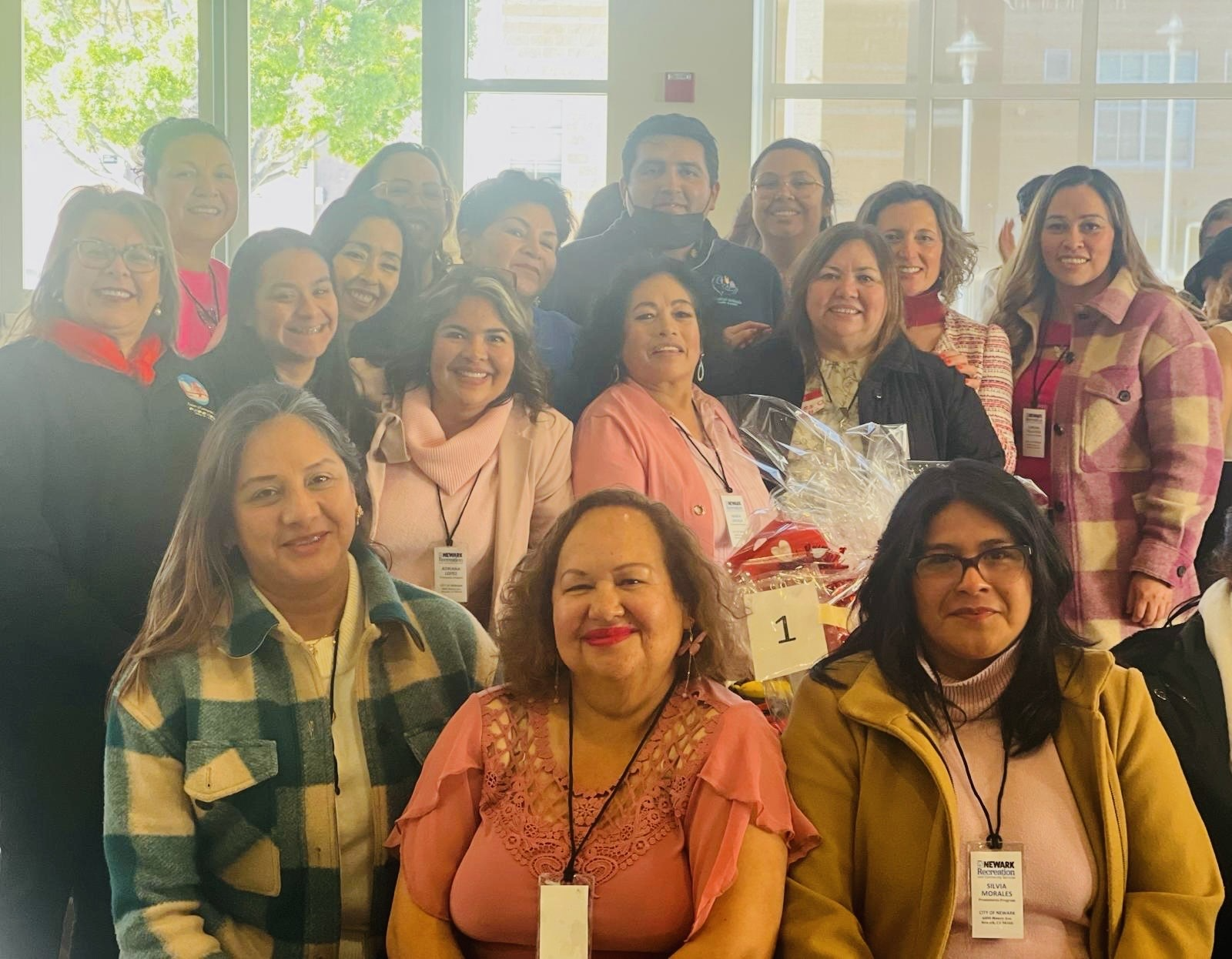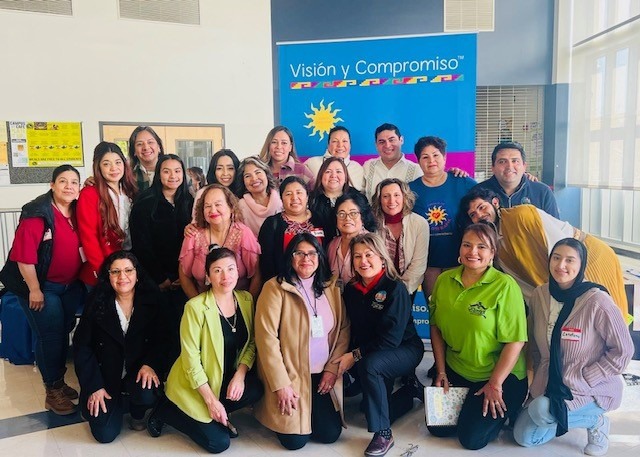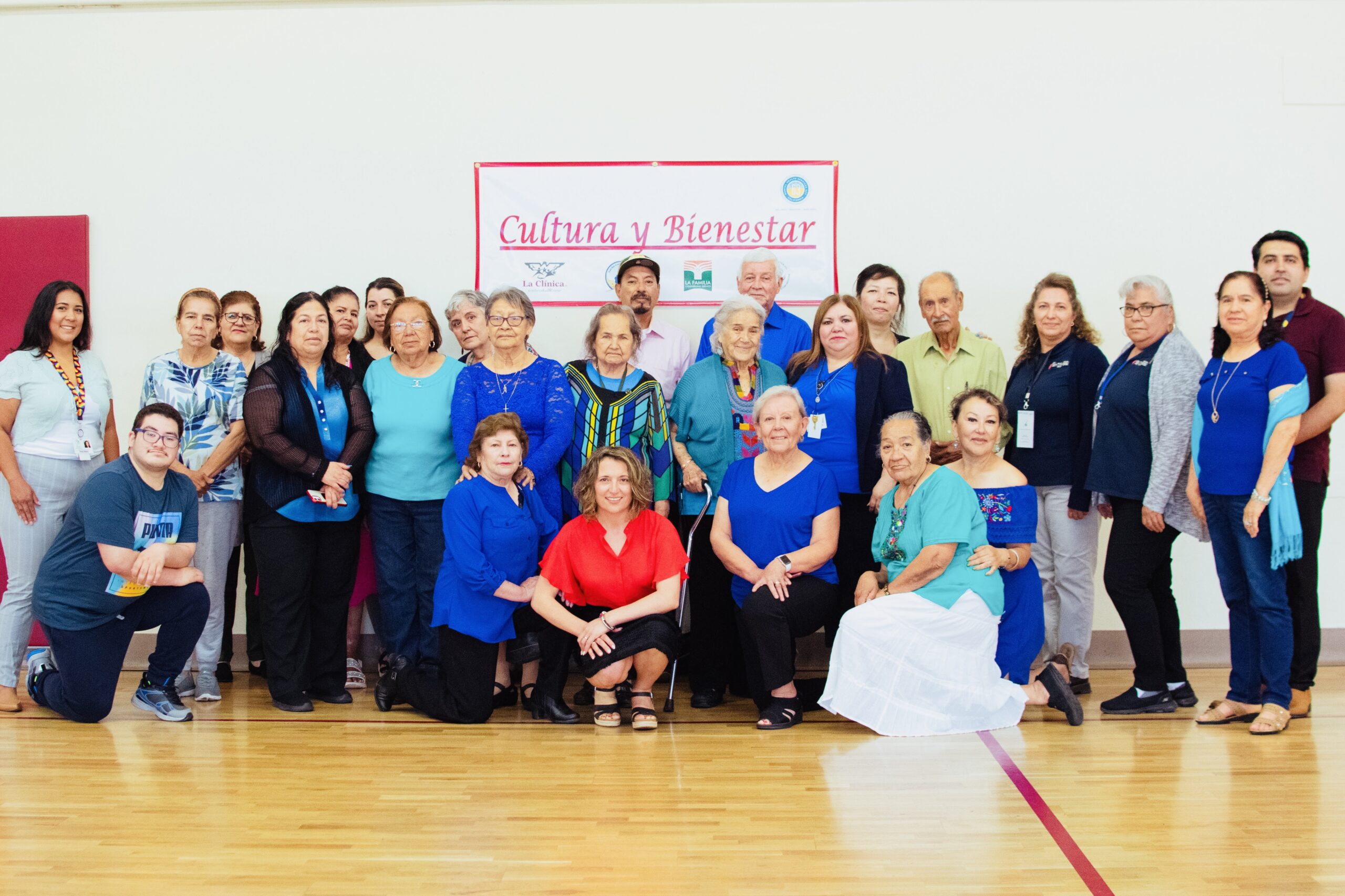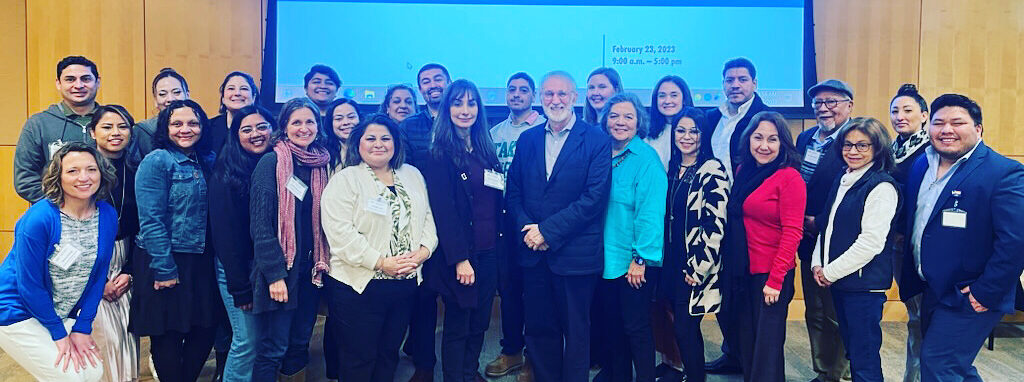The Importance of Culturally and Linguistically Competent Behavioral Health Services

Earlier this month, Tiburcio Vasquez Health Center’s (TVHC) Cultura y Bienestar (CyB) team participated in the Vision y Compromiso Regional Conference in Berkeley where the CyB team had the opportunity to participate in a panel about Immigration, Trauma and Community Work and to discuss the importance of psychoeducation and early mental health intervention with Latino immigrant families. Vision y Compromiso is a California nonprofit organization dedicated to providing comprehensive and ongoing leadership development, capacity building, advocacy training, and support to over 4,000 Promotores and Community Health Workers.
The CyB program provides prevention and early intervention (PEI) services to Latinx and Indigenous residents of Alameda County. The program is part of a collaboration with our other member CHC La Clinica de La Raza and with La Familia Counseling Services. This multi-systemic, culturally non-stigmatizing program is focused on strategies that reinforce existing cultural strengths and practices to facilitate mental health healing, create wellness, and build resiliency within the Latinx community.
Latinx and Indigenous residents of Alameda County. The program is part of a collaboration with our other member CHC La Clinica de La Raza and with La Familia Counseling Services. This multi-systemic, culturally non-stigmatizing program is focused on strategies that reinforce existing cultural strengths and practices to facilitate mental health healing, create wellness, and build resiliency within the Latinx community.
participants felt less nervous, fidgety, depressed, and worthless after receiving CyB services
It has been recognized by experts in the mental health field that immigration is a highly stressful experience that can stem from grief and uncertainty and can also involve trauma resulting from the process of being exposed to situations that have created fear due to threats of personal harm or death. Research has shown that Latinx communities confront many cultural and linguistic barriers in accessing health and other social services in the United States. The CyB program is positioned as a preventive/early intervention mental health program that centers the importance of providing psychoeducational (educating people about psychological issues as it pertains to their symptoms and conditions) workshops to the community to provide education and resources about certain topics, increase awareness about mental health, promote concepts of psychological well-being and break the stigma of mental health problems. The overarching goal is to help break down the Latinx pattern of minimization and normalization of psychological suffering.
Taking this into consideration, the panel discussion took the opportunity to increase awareness about immigration grief and the impact on the next generation – an important conversation about the effects of unresolved grief and family dynamics in the identity formation of the children of immigrants.
CyB plays a crucial role as part of the Integrated Behavioral Health Department (IBH) at TVHC. The Integrated Behavioral Health department has implemented a culturally/linguistically informed care coordination model, where CyB serves as a platform to reduce the waiting list for culturally/linguistically appropriate mental health services.
implemented a culturally/linguistically informed care coordination model, where CyB serves as a platform to reduce the waiting list for culturally/linguistically appropriate mental health services.
A 5-year research project done by the California Reducing Disparity Project confirmed CyB as an evidence-based community prevention and early intervention mental health program. This research highlighted that participants felt less nervous, fidgety, depressed, and worthless after receiving CyB services. They expressed less marginalization and isolation from society as well as more connection to their culture. Cultural resilience was also noticed in terms of stronger identity, described as feeling good about who you are and feeling more connected to spiritual/cultural traditions. Clients reported less interference of mental health problems in daily activities as well as more awareness and sensitivity to discriminatory practices.
Ideally, as part of a long-term goal, CyB’s focus is to expand services to other counties and states to increase access for prevention and early intervention mental health services to Latinx immigrants’ families. However, CyB is facing uncertainty regarding its expansion due to the Mental Health Reform Prop 1, which threatens to shrink or cancel most of PEI funds.
You can learn more about TVHC HERE.
